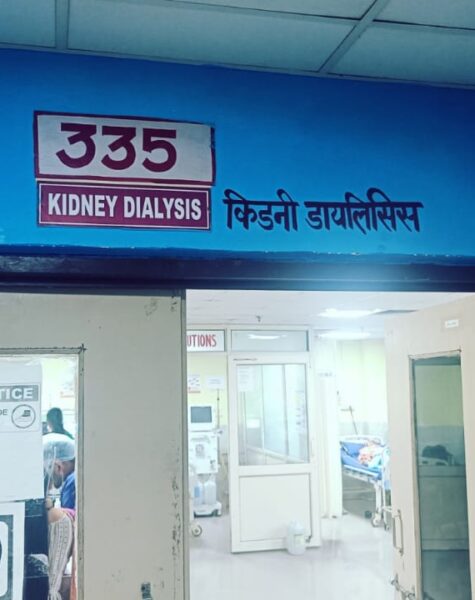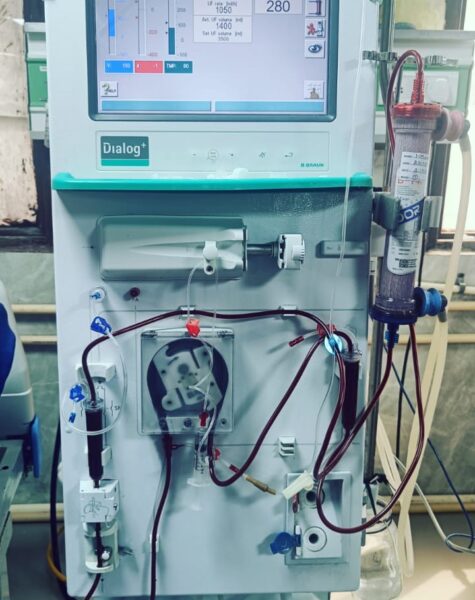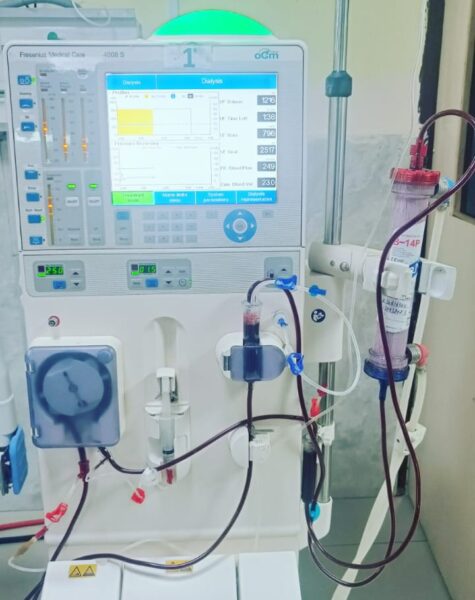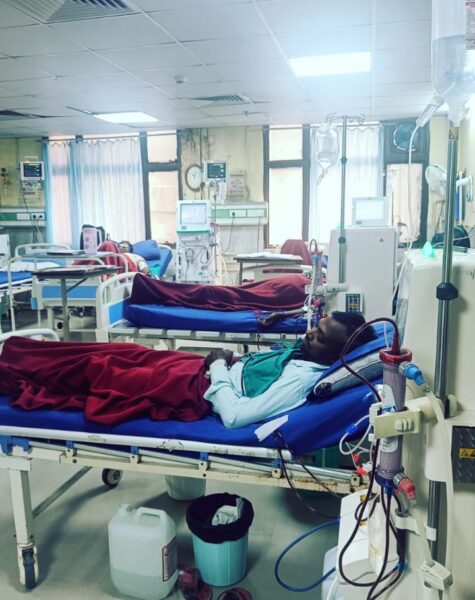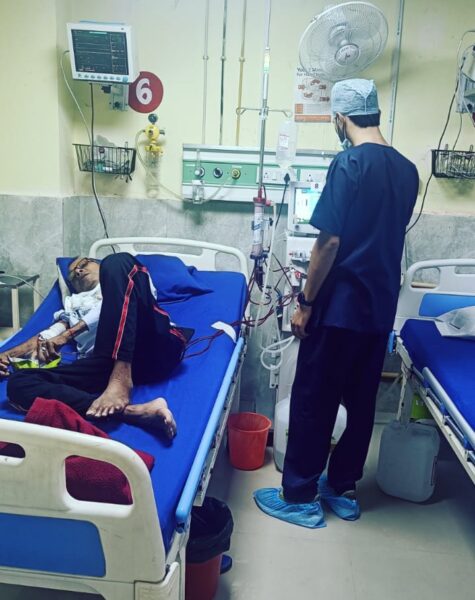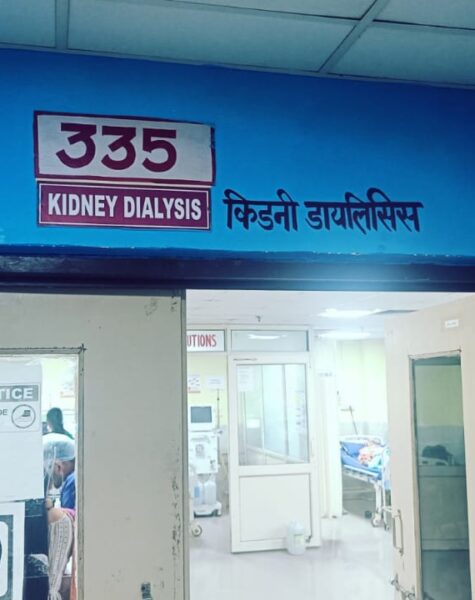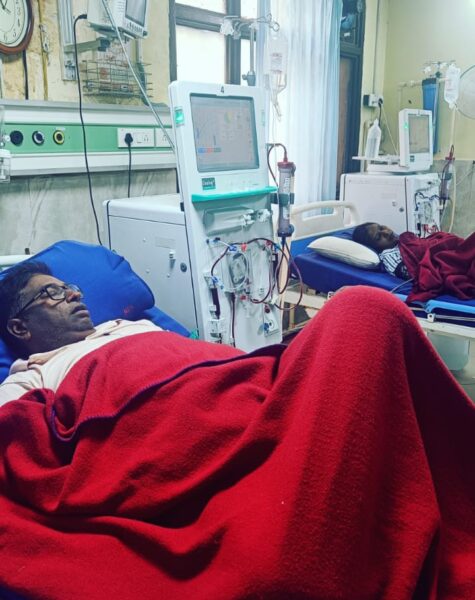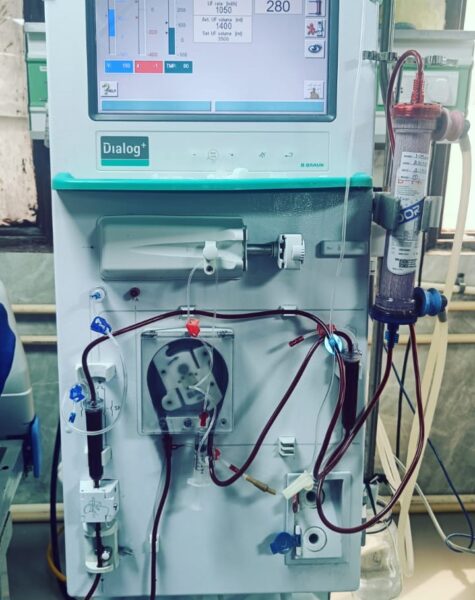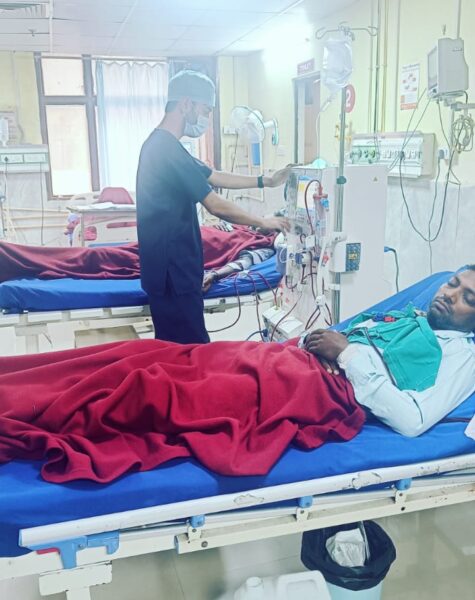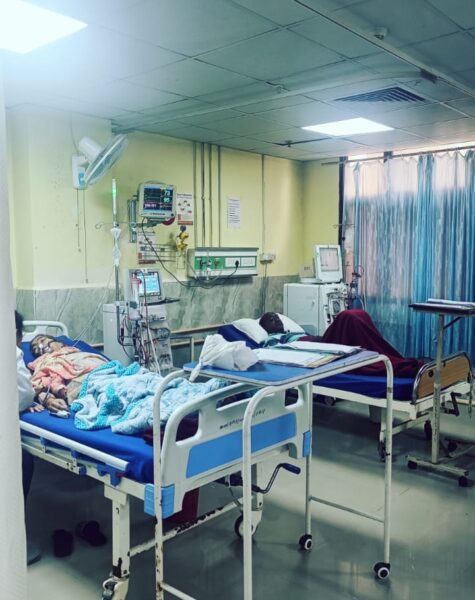24X7 Dialysis Centre
A 24×7 Dialysis Centre is a medical facility that provides round-the-clock dialysis treatment for patients with end-stage renal disease (ESRD) or other kidney-related conditions. Dialysis is a life-sustaining procedure that helps filter and remove waste products and excess fluids from the blood when the kidneys are no longer able to perform this function adequately.
Here are some key aspects of a 24×7 Dialysis Centre:
1. Continuous availability: A 24×7 Dialysis Centre operates 24 hours a day, 7 days a week, ensuring that patients can receive dialysis treatment whenever they need it. This is especially important for patients with ESRD who require regular and frequent dialysis sessions to maintain their health and manage their condition.
2. Dialysis treatment options: These centres offer different types of dialysis treatments, including hemodialysis and peritoneal dialysis. Hemodialysis involves using a machine to filter the blood outside the body, while peritoneal dialysis utilizes the lining of the abdomen to filter waste and excess fluid. The choice of treatment depends on the patient’s condition, medical history, and preferences.
3. Trained healthcare professionals: A 24×7 Dialysis Centre has a team of trained healthcare professionals, including nephrologists, dialysis nurses, dialysis technicians, and support staff. These professionals have expertise in administering dialysis treatments, monitoring patients during the procedure, and managing any complications or emergencies that may arise.
4. State-of-the-art equipment and facilities: Dialysis centres are equipped with advanced dialysis machines, monitoring devices, and other necessary medical equipment to ensure safe and effective dialysis treatments. The facilities are designed to provide a comfortable and sterile environment for patients undergoing treatment.
5. Patient education and support: 24×7 Dialysis Centres often provide patient education and support services to help patients and their families understand the dialysis process, manage their condition, and make lifestyle adjustments. They may offer dietary counseling, medication management, and psychological support to promote overall well-being.
6. Collaboration with other healthcare providers: Dialysis centres work in collaboration with other healthcare providers, such as nephrologists, primary care physicians, and hospitals. This ensures seamless coordination of care, regular monitoring of patients’ health, and timely interventions, if required.
Facilities
- Contact us
- info@amch.ac.in
- Ambulance: 8222954130
- Phone: 0171-2700000, 2700001
- Emergency: 8222954101
- NH - 44, VILL. MOHRI, SHAHBAD (M), DIST. KURUKSHETRA PIN 136135
